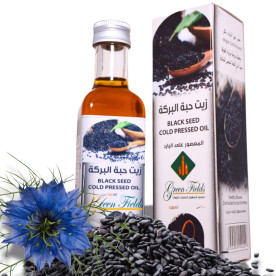Health Benefits of Sesame
Sesame seeds, Sesamum indicum, are one of the world’s oldest known spices. Because of its remarkable resistance to oxidation and rancidity, it’s also known as “Queen of Oilseeds.” Sesame seed oil is abundant in polyunsaturated fatty acids (PUFA) and natural antioxidants, such as sesamin, sesamolin, and tocopherol homologue. They’re versatile, fragrant, and come in nutty varieties. It is grown for its edible seeds, which are used in a variety of recipes all over the world. They are high in protein, fiber, and healthful fats, Calcium, B vitamins, vitamin E, and antioxidants are all found in sesame seeds.
Sesame seeds can be eaten raw, added to dishes as an ingredient, or cooked with sesame seed oil. Tahini is a paste formed from sesame seeds that is used to make hummus and other dishes. Sesame seeds have been utilised in folk medicine for thousands of years.
Sesame seed has a variety of nutritional components that have a variety of health benefits in humans. Vital minerals, vitamins, phytosterols, polyunsaturated fatty acids, tocopherols, and a unique class of lignans called sesamin and sesamolin are among the bioactive components found in the seed. Both of these compounds are lignans, a type of beneficial fibre that lowers cholesterol in humans, lowers blood pressure in animals, and increases vitamin E levels. (Niti Pathak, 2014).
Anti-oxidant Properties of Sesame seeds
Sesame seeds possess anti-oxidant properties. Antioxidant activity appears to be linked to the protection of degenerative diseases like cancer, heart disease, atherosclerosis, and the ageing process. Lignans have anti-oxidant properties protect the body against reactive oxygen species, are found in sesame seeds and play an important role in health promotion. Sesame lignans have a variety of pharmacological properties, including antioxidant activity, anti-proliferative activity, and are responsible for increasing vitamin E antioxidant activity in lipid peroxidation systems, and play important role in lowering cholesterol levels, and exhibiting antihypertensive properties.
Promotes Hair Growth
Are you losing your hair? Sesame seeds should be consumed in large quantities. The roots are strengthened by sesame seeds. The seeds’ high omega fatty acid content promotes hair development while also repairing hair damage. They also aid in scalp moisturisation and blood circulation, which helps to regenerate hair follicles.
Sesame oil feeds your hair follicles with essential nutrients, boosting their strength and texture. Use a tbsp of sesame oil and gently massage your scalp with it. It will go deeper into the scalp to promote blood circulation and hair quality. Allow it to sit for an hour or overnight before washing with a gentle shampoo.
Helps in Lowering Cholesterol and Triglycerides
Lignans and phytosterols are two types of plant components found in sesame seeds that help lower cholesterol levels.
According to several research, eating sesame seeds on a regular basis can help lower high cholesterol and triglycerides, both of which are risk factors for heart disease.
Sesame seeds are high in saturated fat (16%), polyunsaturated fat (40%), and monounsaturated fat (39%). According to research, eating more polyunsaturated and monounsaturated fats than saturated fats can help lower cholesterol and lower the risk of heart disease.
Boosts Skin Health
Sesame seed oil has anti-aging properties. They aid in restoring and suppleness of the skin. They’re high in anti-inflammatory compounds, which help to treat redness, sores, and other skin problems on the face from the inside out.
Improves Hormone Balance during Menopause
Phytoestrogens, plant chemicals that are similar to the hormone oestrogen, are found in sesame seeds. As a result, when oestrogen levels drop following menopause, sesame seeds may be advantageous to women. Hot flashes and other symptoms of low oestrogen, for example, may be helped by phytoestrogens.
Helps in Lowering Blood Pressure
Heart disease and stroke are both linked to high blood pressure. Magnesium is abundant in sesame seeds, which may aid to decrease blood pressure.
Sesame seeds also include lignans, vitamin E, and other antioxidants that may help reduce plaque accumulation in your arteries, potentially resulting in normal blood pressure.
Improves Digestion
Sesame seeds contain significant amount of fiber, which is essential for good digestion. It may help with symptoms like constipation and diarrhoea while also protecting your colon and lowering your risk of gastrointestinal disorders.
Boosts Dental Health
Sesame oil has been extensively used for strengthening teeth, gums, and jaws and to prevent tooth decay and bleeding gums. Gargle daily with a teaspoon of sesame oil added to half a glass of lukewarm water after brushing the teeth. Or wipe teeth and gums with sesame oil after brushing.
Real genuine, cold-pressed raw sesame seed oil, which has all the benefits remaining in the oil..
Actual Tahini(ground sesame seeds) with no whitners or any form of chemicals..
References
Marsha McCulloch, M. R. (2019, February 13). 15 Health and Nutrition Benefits of Sesame Seeds. Retrieved from Healthline: https://www.healthline.com/nutrition/sesame-seeds
Niti Pathak, A. R. (2014). Value addition in sesame: A perspective on bioactive components for enhancing utility and profitability. Pharmacognosy Review, 147-155.
Parthasarathy2, E. a. (2017, September). Anti-inflammatory and Antioxidant Effects of Sesame Oil on Atherosclerosis: A Descriptive Literature Review. Retrieved from NCBI: https://www.ncbi.nlm.nih.gov/pmc/articles/PMC5587404/
Niti Pathak, A. R. (2014). Value addition in sesame: A perspective on bioactive components for enhancing utility and profitability. Pharmacognosy Review, 147-155.











